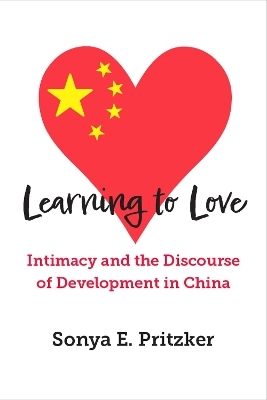
Learning to Love
The University of Michigan Press (Verlag)
978-0-472-07686-4 (ISBN)
Learning to Love offers a range of perspectives on the embodied, relational, affective, and sociopolitical project of “learning to love” at the New Life Center for Holistic Growth, a popular “mind-body-spirit” bookstore and practice space in northeast China, in the early part of the 21st century. This intimate form of self-care exists alongside the fast-moving, growing capitalist society of contemporary China and has emerged as an understandable response to the pressures of Chinese industrialized life in the early 21st century. Opening with an investigation of the complex ways newcomers to the center suffered a sense of being “off,” both in and with the world at multiple scales, Learning to Love then examines how new horizons of possibility are opened as people interact with one another as well as with a range of aesthetic objects at New Life.
Author Sonya Pritzker draws upon the core concepts of scalar intimacy—a participatory, discursive process in which people position themselves in relation to others as well as dominant ideologies, concepts, and ideals—and scalar inquiry—the process through which speakers interrogate these forms, their relationship with them, and their participation in reproducing them. In demonstrating the collaborative interrogation of culture, history, and memory, she examines how these exercises in physical, mental, and spiritual self-care allow participants to grapple with past social harms and forms of injustice, how historical systems of power—including both patriarchal and governance structures—continue in the present, and how they might be transformed in the future. By examining the interactions and relational experiences from New Life, Learning to Love offers a range of novel theoretical interventions into political subjectivity, temporality, and intergenerational trauma/healing.
Sonya E. Pritzker is Associate Professor in the Department of Anthropology at the University of Alabama.
Table of Contents
Introduction
Learning To Love
Entangling Differently
Implicit Justice?
Justice in a Hantopia
Situating the Research
Overview of Chapters
Chapter One: Suffering/Desire
The Tentativeness of Desire
Telling Suffering
Telling-in-Relation
The Feeling of Home
Space Invasion
The Timid and Weak Type
Awkward Introductions
Concluding Reflections
Chapter Two: Home/Horizons
Atmospheres
Textuality and the Agency of Atmopsheres
Boundary Making
Opening the Space
Closing the Space
Concluding Reflections
Chapter Three: The Great Self
Reconfiguring the Body-Self
Big Self, Little Self
The Distributed Body
Enacting the Inner Other
Time Travel
The Madhouse
Dis-concert
Concluding Reflections
Chapter Four: Considering Culture
Chinese Education Methods…or What?
Western Methods
Progress Plus Social Daode
Fake Flowers
Concluding Reflections
Chapter Five: Wrangling With Ghosts
Conversations With Ghosts
The Agency of Images
The Indexicality of Ghosts
Cultural Time in Jiapai
Big Data Cloud
Frameworks of Thought
Concluding Reflections
Chapter Six: These Burdens We Carry
“We Have So Much Hurt”
Speaking of Shame
“The Hate in My Heart”
“Those Things That Are Collective”
Concluding Reflections
Chapter Seven: Tinkering with the Patriarchy
The Permeability of Patriarchy
Men’s Work
“That Home in Your Heart”
Rethinking the Yijing
Concluding Reflections
Conclusion
Perplexing Particulars in the Era of Covid
“Stay With Us”
Concluding Reflections
Bibliography
| Erscheinungsdatum | 29.10.2024 |
|---|---|
| Zusatzinfo | 3 illustrations |
| Verlagsort | Ann Arbor |
| Sprache | englisch |
| Maße | 152 x 229 mm |
| Themenwelt | Geisteswissenschaften ► Geschichte ► Regional- / Ländergeschichte |
| Sozialwissenschaften ► Politik / Verwaltung ► Europäische / Internationale Politik | |
| ISBN-10 | 0-472-07686-8 / 0472076868 |
| ISBN-13 | 978-0-472-07686-4 / 9780472076864 |
| Zustand | Neuware |
| Informationen gemäß Produktsicherheitsverordnung (GPSR) | |
| Haben Sie eine Frage zum Produkt? |
aus dem Bereich


